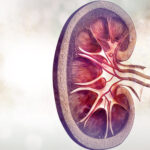“B cells are central orchestraters of autoimmune disease by contributing to autoantibody production, antigen presentation and cytokine production,” says Georg Schett, MD, head of the Department of Medicine 3 (Rheumatology and Immunology) of the Friedrich-Alexander University Erlangen-Nürnberg, Germany. “B cells can be inhibited by monoclonal antibodies and chimeric antigen receptor (CAR) expressing cells.” Dr. Schett…







